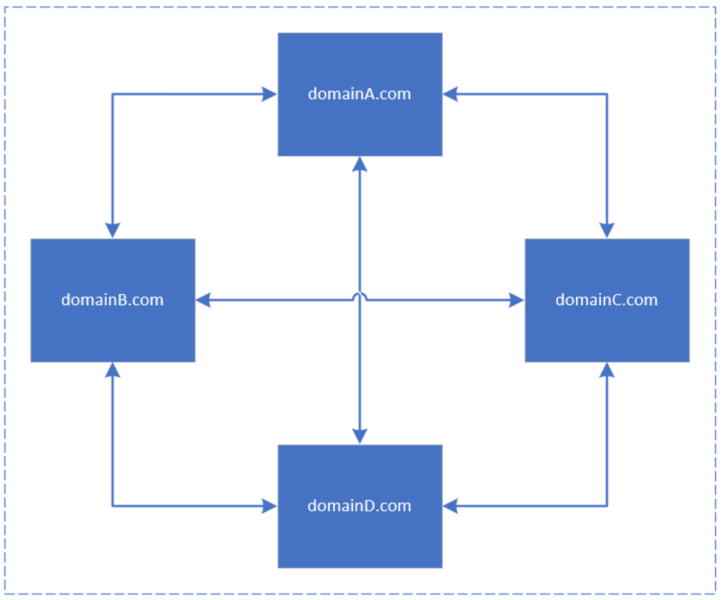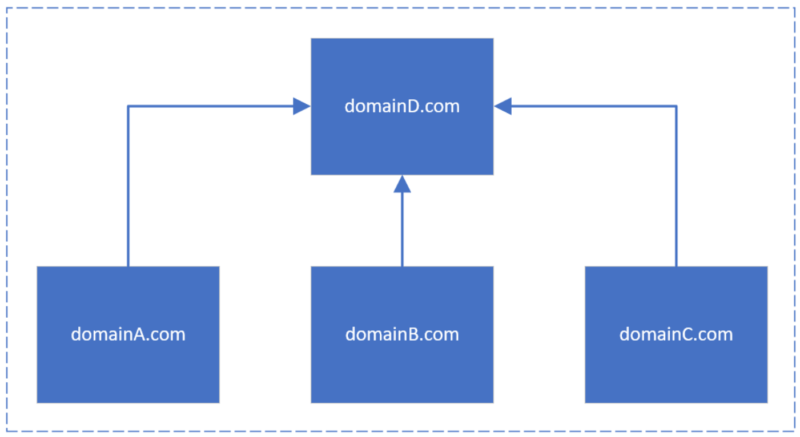Bing introduces penalty for ‘inorganic site structure’ violations
It includes penalties for subdomain leasing, doorway content and sites involved in private blog networks.
Bing is introducing a spam penalty against “inorganic site structure” violations, the search engine announced on Monday. The new penalty seeks to address tactics such as subdomain leasing, doorway content and sites that participate in private blog networks.
Where your website ends. To provide context for its new penalty, Bing provided two examples of typical website boundaries.
The first, and most common, boundary is defined by the domain, in which each page, subfolder and subdomain are all considered part of the same site.
In the second example, as seen below, each subdomain is considered its own website.

Defining website boundaries is particularly important because algorithms assign a different value to internal links than they do to external links.
“If your internal links are viewed as external, you can get a nice rank boost,” the blog post reads, “And if you can propagate some of the site-level signals to pages that don’t technically belong to your website, these pages can get an unfair advantage.”
Private blog and link networks. These scheme networks exist to manipulate search engines by artificially passing link equity to other sites so that those target sites rank higher.

Participating in private blog and link networks is already a violation of Bing’s link policy. “Going forward, it will be also in violation of our ‘inorganic site structure’ policy and may receive additional penalties,” the post reads.
Doorway and duplicate content. Bing has seen a rising trend in bad actors creating dozens of doorway sites to try to rank for different keyword sets, Frédéric Dubut, web ranking and quality project manager for Bing, recently told Search Engine Land. As illustrated below, these doorways, which are designed to look like several independent sites, redirect to the same destination, deceiving users who click through.

Since duplicate content is a common occurrence, Bing will be assessing the intent of such content before designating it a violation of its inorganic site structure policy.
Subdomain or subfolder leasing. The practice of leasing a subdomain to a different entity makes it difficult to discern how involved the main domain owner is, thus making it more difficult to tell whether the subdomain should be considered part of the main site.

A lack of easily accessible, direct navigation between the main site and the subdomain was a commonality between the cases Bing reviewed. “Therefore, the intent was clearly to benefit from site-level signals, even though the content on the subdomain had very little to do with the content on the rest of the domain,” the post reads.
Bing acknowledged that some consider allowing a third party to rent and operate a subdomain to be a legitimate way to monetize a website.
“However, in this case the practice equates to buying ranking signals, which is not much different from buying links. Therefore, we decided to consider ‘subdomain leasing’ a violation of our ‘inorganic site structure’ policy when it is clearly used to bring a completely unrelated third-party service into the website boundary, for the sole purpose of leaking site-level signals to that service.”
For the majority of subdomain leasing cases, the penalty would be confined to the leased subdomain and not the root domain.
Why we should care. The violations mentioned above may be tempting shortcuts, and, apparently, enough site owners have resorted to them as to warrant a new penalty. Regardless of what new, questionable tactic you stumble across, know that getting caught can have dire consequences for your organic visibility or may even result in delisting — and there’s no shortcut for coming back from that.
As a site owner, you may also be held responsible for content hosted under your domain. “Taking an extreme case, if you offer free hosting on your subdomains and 95% of your subdomains are flagged as spam, we will expand penalties to the entire domain, even if the root website itself is not spam,” the post reads. Penalties may also be generalized for subfolders or subdirectories that Bing suspects have been hacked.
Opinions expressed in this article are those of the guest author and not necessarily Search Engine Land. Staff authors are listed here.
Related stories
New on Search Engine Land